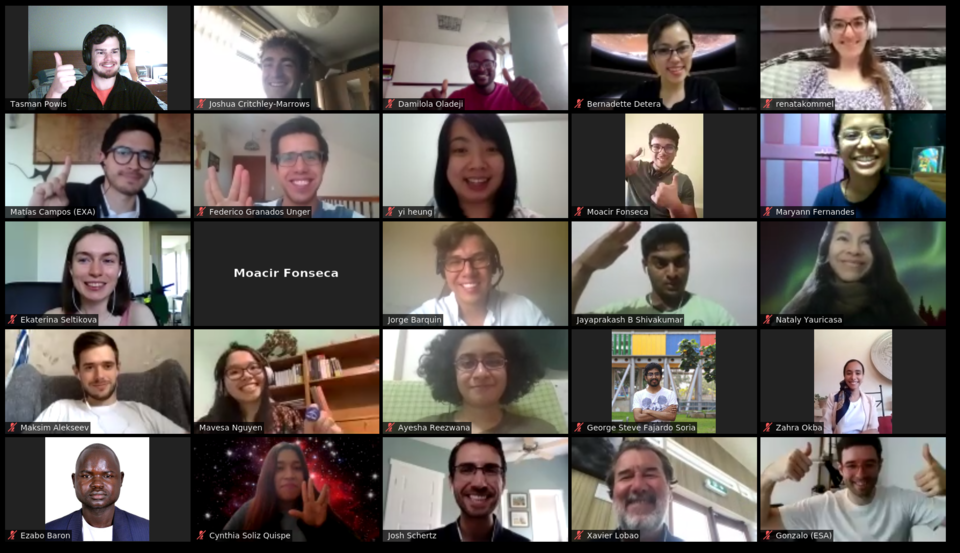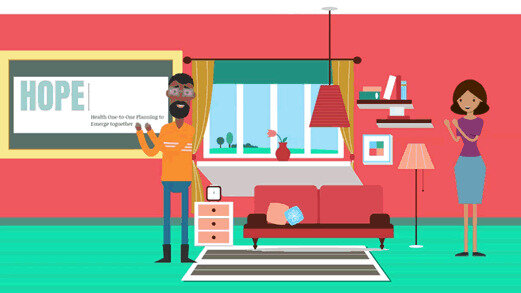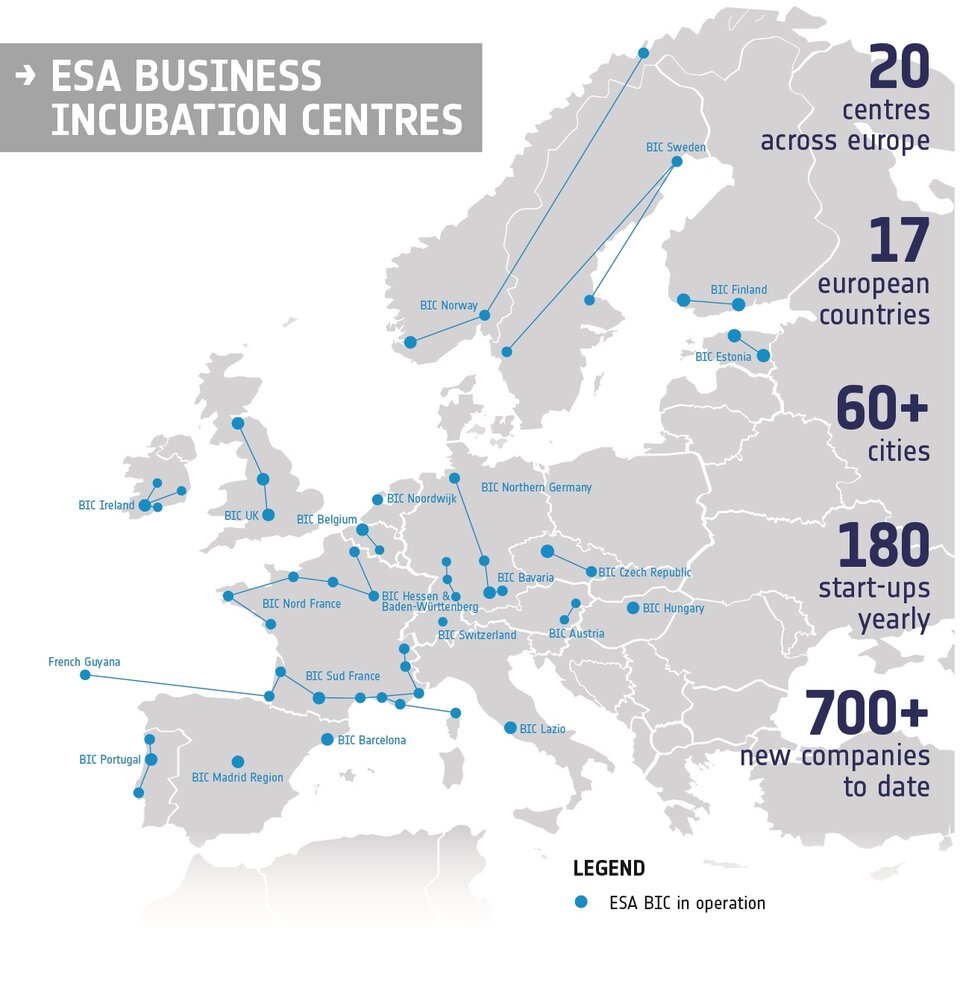ESA hackathon explores how space can tackle COVID-19
This summer, SpaceGen United brought together 140 students and young professionals from 52 countries with one thing in common: they are all passionate about space. Arising from the virtual event came a brilliant idea to help the public remain informed about the COVID-19 pandemic.
As part of SpaceGen United, ESA hosted a hackathon that tasked delegates to design an application using space technology to address UN Sustainable Development Goal 3: good health and well-being. The hackathon focused on the consequences of lockdown, isolation, and remote living. 21 participants took part, working in five teams to design their application, develop a business model, and prepare a final pitch to ESA judges.
The hackathon kicked off with an introduction from each participant, in which they described some of the challenges that many are facing during the COVID-19 crisis. These included the all-too-familiar separation from friends and family, but also extended to personal stories of suffering with the disease and dealing with consequences of increased unrest and crime in certain areas. These introductions provided more than enough motivation for participants to move into the hackathon.

ESA experts were on hand to assist participants with the challenge. Together with moderators, they checked in on teams regularly, supporting the growth of their ideas throughout the event.
On the final day of SpaceGen United, hackathon teams pitched their applications to a panel of ESA judges. Solutions included improving access to medical resources in remote communities in Africa, connecting consumers to local farmers during periods of decreased mobility, automated temperature monitoring for large campuses, and a tool using big data and geospatial information to help families be prepared during the COVID-19 pandemic.

This last application was narrowly selected by the judges as the hackathon winner. HOPE (Health One-to-one Planning to Emerge together) would ask one simple question: 'Who owns COVID-19?'. The idea took inspiration from the Poverty Spotlight tool from NGO Fundación Paraguaya; Poverty Spotlight uses mobile technology and social innovation to help families design their own strategy to break free from poverty.
By incorporating the latest medical research, public health data and geospatial information, HOPE could be used to empower people to 'own' their health and well-being. The app could support users to develop personal and community action roadmaps for the COVID-19 crisis, as well as to prepare for any future pandemics.

As winners of the hackathon, team HOPE was awarded the opportunity to discuss the prospects of their application with ESA Space Solutions in the context of its Business Incubation Centre (BIC) programme. ESA Space Solutions has supported nearly a thousand start-ups and oversees the largest space entrepreneurship network in the world.
The judges also gave a special mention to team E-safe, who carefully considered the technical and social challenges of installing automated temperature sensors across academic or workplace campuses.
Sponsored by ESA, SpaceGen United ran virtually on 18–26 July 2020 in place of the Space Generation Advisory Council's (SGAC) flagship event, the Space Generation Congress, normally held annually in conjunction with the International Astronautical Congress. The SGAC found that the reduced financial and immigration constraints of a virtual event allowed for an increase in participation from developing nations.


